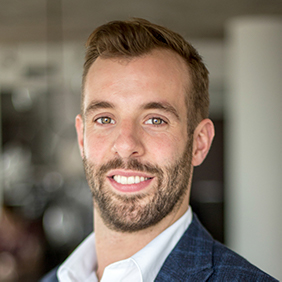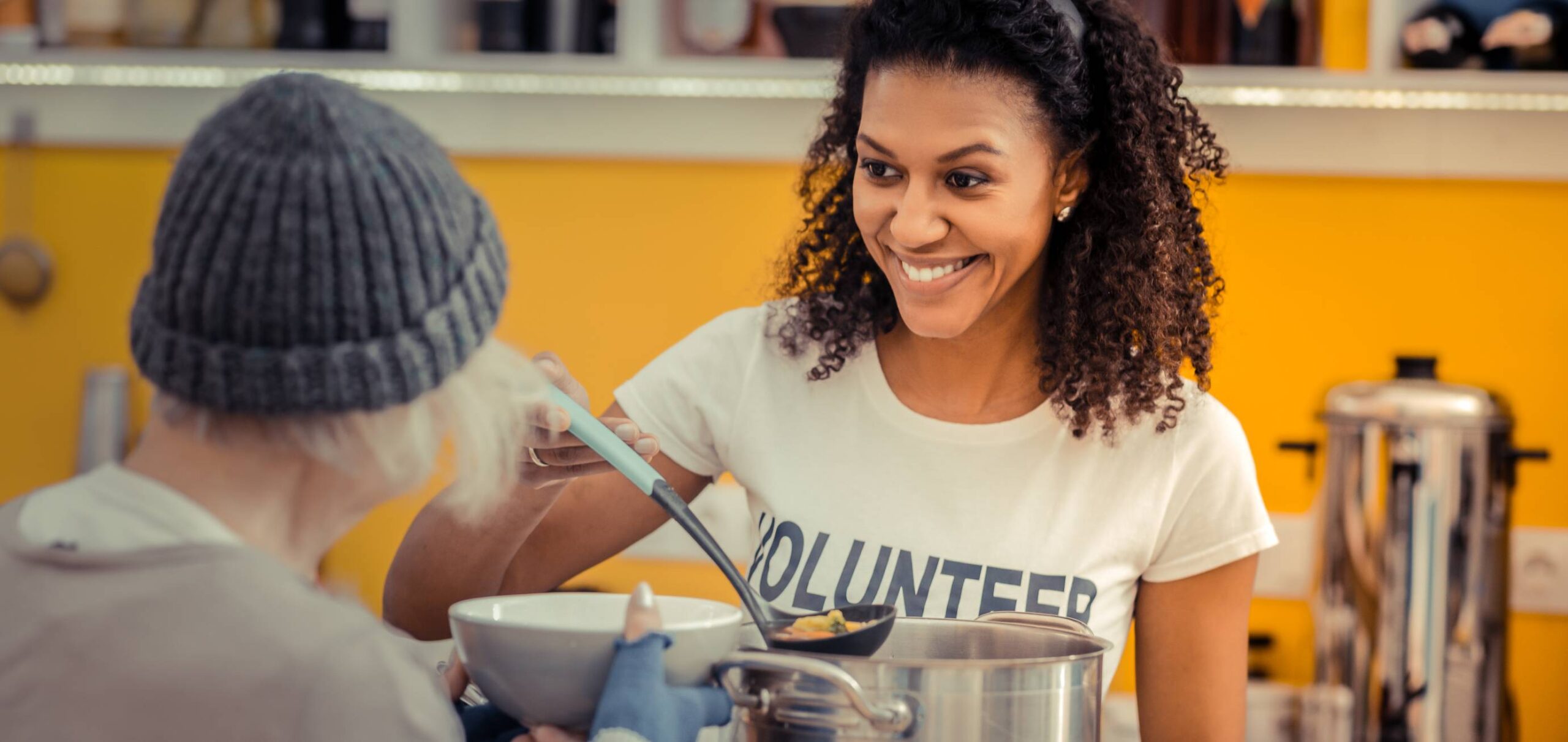When I was a boy and I would see scary things in the news, my mother would say to me,
‘Look for the helpers. You will always find people who are helping.’
-Fred Rogers
I, like most, have been recently distracted by the circumstances surrounding COVID-19. Since last Wednesday, when the US president shut down the American border, what had been a distant, scary, impending force has crashed into daily life in increasing ways. Travel bans, office and school shut-downs, professional sports cancellations – the list of disruptions to our way of life is growing – quite literally – by the minute. This week alone, two of my closest friends have been forced to cancel their dream weddings. It is frustrating, scary, and overwhelming.
I wholly recognize that there are people the world over in more dire situations than myself as I sit, healthy, with my dog in our downtown Toronto home. I still, however, find myself struggling to sort through my thoughts and determine how to best conduct myself in this growing uncertainty.
But, in terms of what we can do in the face of COVID-19, there are a few points I hope you’ll consider:
1. Social distancing is of critical importance.
As a sports fan, I can think of no better illustration of the criticality of social distancing than the Rudy Gobert incident from the NBA. Following a March 9th press conference in which the threat of the virus was a topic of interest, the Utah Jazz star playfully mocked the situation, and made a point to touch the reporters’ microphones before leaving the room with a smile. Two days later, he was the NBA’s first confirmed COVID-19 case. As a result, the NBA shut its doors on the entire season.
Rudy Gobert should not be vilified. In fact, he represents how most people typically deal with similar scenarios. Western society tends to make light of heavy situations in an effort to believe they aren’t really happening – or at least that they won’t happen to us. We cling fiercely to a sense of freedom and independence, and we don’t want to believe that anything can or should compromise how we go about living our lives. That was the approach Rudy Gobert was taking, and the approach the majority of US and Canadian citizens were taking at the time – the reactive approach. The fallout of this attitude is becoming increasingly clear in the COVID-19 situation: if you are not proactive, you become part of the problem.
Contrasting this approach to the way society approaches threats of terrorism is a helpful exercise. It is impossible for the average person to be proactive when it comes to protecting themselves against acts of terror. For example, on 9/11 we could not predict what was coming, and America was forced to react: tightening domestic security, launching new contingency and emergency response plans, increasing intelligence measures, banding together as a nation. The American people essentially stated, “We will not let terrorism compromise our way of life.” The issue is, if we take a similar reactive approach to COVID-19, we risk compromising our own health and the health of the most vulnerable people in society – seniors and the immunocompromised – at a rate our system is unable to support.
I think it’s dangerous to live a reactive lifestyle, especially in this scenario. In the case of COVID-19, it is selfish and irresponsible to not practice social distancing (whether it is mandated or not), or to not practice safe hygiene. If we choose not to be proactive, there are far-reaching negative implications for the healthcare system, vulnerable populations – and our sense of humanity. If the virus continues to spread exponentially, the global healthcare infrastructure simply cannot support the flood of cases all at once. As a relatively young, healthy individual, I know that if/when I contract this virus, my chances of a full recovery are very high. The same cannot be said about my parents, my elderly neighbours, and the countless other more vulnerable people I would typically encounter daily. It is with these people in mind that I will do whatever I can to flatten the curve and give our system a chance to catch up. I will not be a part of the problem. This goes for COVID-19 and this goes for my relative place in society, too. It is not us versus them. It is us.
We belong to each other and we must face the issues that threaten to harm us with solidarity and shared humanity as our guide.
2. There are still ways to help those around us.
As we come to terms with adjusting our daily lives for the greater good, it’s natural to lean toward self-preservation. That’s okay and shouldn’t be judged – assuming we’re not preventing others from receiving access to resources (like toilet paper!). There are ways, however, that we can support one another through this increasingly challenging time.
Aside from urging more reluctant friends and family to heed the message of social distancing, here are a few simple ways to support those around you:
- Look out for your vulnerable neighbors. I live in an area where there are lots of elderly residents – those residents are often scared, alone, and do not have the means to make themselves as comfortable as I can in these times of isolation.
In an effort to make them feel less alone, I posted some messages throughout my apartment building offering help for anyone who needs prescriptions picked up, groceries purchased, errands run, dogs walked – or anything else they may need. I provided my phone number and promised to exercise every precaution to ensure our collective health and safety.
- Prepare to help, not hurt. For those times when I’m out of my home, I keep face masks and rubber gloves with me at all times. This way, if I come across someone who could use assistance, I can step in while mitigating any risk. Honestly, I don’t want to be that guy who’s afraid to help because of a need to remain distant. I want to retain my humanity, my sense of empathy, my ability to assist if ever the need arises.
My hope is that, at the very least, these small actions can help people feel less alone and less scared in these difficult times – and that it can help me, too, when I need to feel connected and when I need a sense of purpose. For more ideas, check out this helpful article with ideas on how to help others during the COVID-19 crisis.
- Finally, continue to conduct work in a thoughtful, proactive manner. At Realized Worth, we pride ourselves on being highly effective at working remotely – honestly, it’s our only choice! We’ve been a company of remote workers for nearly 12 years. Over the next week, we will be releasing more information and tips on how to effectively engage your teams from home, host productive virtual meetings, and continue to do your job in the face of our new reality.
We have also temporality shifted the services of our consulting team away from on-site engagements to virtual, remote work that is both productive and engaging. We are providing services such as our virtual “Foundations Workshop” and our consulting series, “How to Engage Employees in Virtual Volunteering,” which directly address the pressing challenges our partners and clients are facing. These offerings effectively leverage out-of-office time to support projects that were previously relegated to the back burner. We’re eager to power the continued good work of our clients and partners, as we need it more now than ever.
There’s nothing we like more than talking corporate citizenship and sharing industry best practices. We’re delighted to talk about our work, discuss your program, strategize on how the current situation will impact your work, and what you can do about it. Don’t hesitate to reach out for a conversation – we welcome any opportunity to restore normalcy to our days and yours.
Thank you all for your continued partnership,
Dave Spindler and your friends at Realized Worth







2 Comments. Leave new
I am extremely impressed by your educated approach to addressing this very serious issue. Thank you David for explaining this to the masses in such a comprehensive manner.
Thank you for the comment, Sue. It was actually a very helpful for me to sort through my thoughts and put them down on paper. I am grateful for this medium to do so. I am thrilled you liked it, and I hope you are keeping well and staying positive!